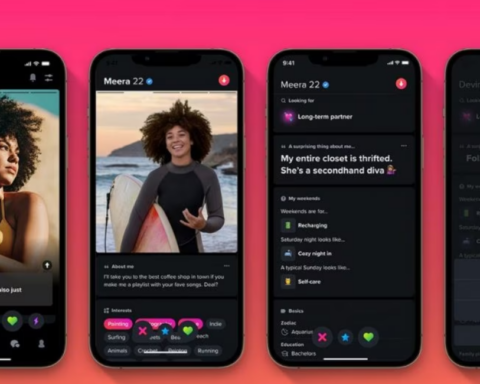Match Group, the parent company of Tinder, along with several Indian startups, have requested the country’s competition watchdog to investigate Google for violating an antitrust directive. The directive requires Google to comply with certain regulations around charging a high service fee for in-app payments.
The Alliance of Digital India Foundation (ADIF) has also filed a similar complaint against Google. This move by the companies is the latest in a series of disputes between Google and its competitors, who have accused the tech giant of imposing unfair business restrictions.
“Google’s policy change of a charging service fee even on transactions processed by third-party payment processors … has detrimental consequences for users and app developers,” the 15-page confidential March complaint by ADIF said.
Google is under investigation by India’s Competition Commission after Match Group and the ADIF filed complaints alleging that the tech giant is charging a high service fee for in-app payments, in violation of antitrust regulations.
Google has argued that the fee helps fund Google Play and Android, providing developers with free distribution, tools, and analytics services.
The details of the complaints were revealed in recent reports by Reuters, which also noted that the Competition Commission of India imposed a $113 million fine on Google last October and ordered the company to allow the use of third-party billing and stop forcing developers to use its in-app payment system that charges a commission of 15%-30%. Google declined to comment on the latest complaints.
The ADIF claimed in its lawsuit that the new method charges a “service fee” when Google later opted to start offering User Choice Billing (UCB) for permitting other payments in addition to Google’s when purchasing in-app digital content.
“The app developers will have to pay 1%-3% for alternate payment service providers and 11%-26% to Google, which makes the entire ecosystem unsustainable,” ADIF said.
Match has requested the CCI to direct Google to cease collecting or imposing any commission or service fee, including via user choice billing. According to Match, Google’s system is “anti-competitive”. The complaint is the latest issue between Google and rival companies, who have accused Google of unfair business restrictions.
Google has previously argued that the service fee supports investments in Google Play app store and the Android mobile operating system. The fee also covers developer tools and analytic services.
However, the CCI has already imposed a $113 million fine on Google and ordered it to allow the use of third-party billing and stop forcing developers to use its in-app payment system, which charges a commission of 15%-30%.
Google faces other regulatory challenges in India, including a setback that forced it to change how it markets its Android system. As one of its major growth markets, India is an important area for Google to navigate these regulatory challenges. Google has challenged this in an Indian tribunal.
In its March lawsuit, ADIF, which represents Indian startups such as social media app ShareChat and digital payments company Paytm, said that Google was exploiting the new service fee system to evade the antitrust rule that prohibited it from imposing any “unfair and disproportionate” restrictions.
“The policy of UCB is unfair and the same would lead to unjust enrichment to Google,” the ADIF filing said.









